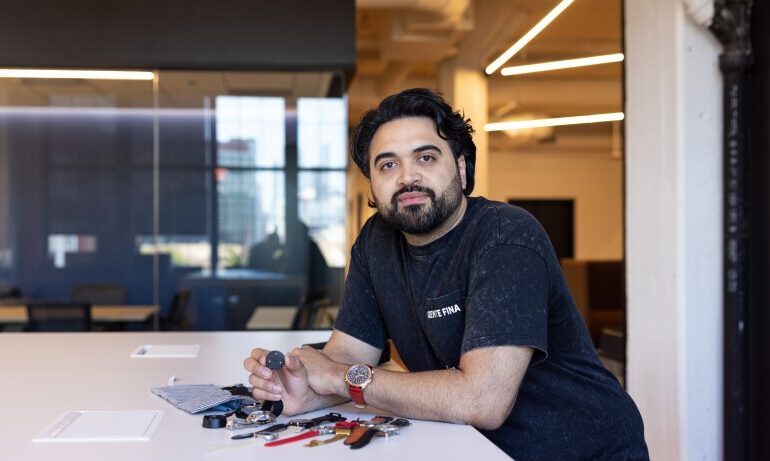Startups at mHUB Confront Challenges from Tariffs

Entrepreneurs at the manufacturing incubator mHUB in Chicago are facing significant challenges due to recent tariff policies. The incubator, which supports around 1,200 entrepreneurs and 300 companies, specializes in hardtech innovations, including products like smartwatches and medical devices. With the recent announcement of 25% tariffs on cement imports from Canada and Mexico in April 2023, startups are grappling with rising costs and supply chain disruptions.
Located in the West Loop, mHUB offers resources such as workshops equipped with power tools and 3D printers. It recently completed a $50 million renovation of its facility at 1623 W. Fulton St., expanding its space to 80,000 square feet to foster greater innovation and manufacturing capabilities. Since its inception in 2017, mHUB has backed over 500 startups, creating approximately 6,800 jobs and generating $3.9 billion in economic activity, according to the organization.
The impact of the tariffs is particularly pronounced for companies that rely on imported components. In a recent survey conducted by mHUB, 77% of respondents indicated they expect total manufacturing costs to rise, with half unable to absorb the financial strain. Bill Fienup, mHUB’s co-founder and vice president of innovation services, noted that small businesses, especially in the hardtech sector, are feeling the effects acutely. “Tariffs have shaken things up for small hardtech businesses,” he stated.
Startups like Ganance, founded by Alex Ocampo, are navigating these turbulent waters. Ganance, which produces sensors to turn traditional watches into smartwatches, faced significant cost fluctuations due to tariffs. Ocampo had to update his financial models frequently as tariffs fluctuated dramatically. “Government policy shouldn’t be the one to take you out,” he remarked, referring to the unpredictable nature of the tariffs. Fortunately, Ganance received a reprieve when certain electronic components were exempted from the highest tariffs.
Another mHUB member, Tikal Industries, is also feeling the dual pressure of rising demand and higher costs. The company plans to launch its first microfactory in the Chicago area next year, capitalizing on increased interest in domestically-produced cement since the tariffs were imposed. However, Tikal’s chief technology officer, Tayyaba Ali, reported that tariffs have raised equipment costs by 30%, complicating their expansion plans.
The challenges extend beyond financial pressures. Delivery times for essential components have lengthened significantly, with some suppliers unable to meet demand due to tariff-induced complexities. Ashley Moy, co-founder of Cast21, which produces a medical device alternative to traditional casts, stated that the prices for small metal components have doubled, leading to delivery delays that have stretched from one day to 18 weeks.
Despite these hurdles, some startups are finding ways to adapt. Fienup mentions that a few companies have successfully redesigned their products to use components not subject to tariffs, enabling them to sustain operations more effectively. “Tariffs created real challenges, but they also pushed companies to get creative,” he said.
While some mHUB members have managed to navigate these changes, the overall sentiment is one of caution. Ocampo expressed concern for those in industries without similar exemptions or support, emphasizing that startups face unique challenges compared to larger firms that can often absorb costs or lobby for favorable policies. “Startups only get one shot to get things right,” he concluded.
As the manufacturing landscape in Illinois continues to evolve, the challenges posed by tariffs remain a central concern for many entrepreneurs. With manufacturing accounting for more than $580 billion of the state’s gross domestic product and employing over 660,000 workers, the health of this sector is crucial for the overall economy. As these startups adapt, their resilience will play a pivotal role in shaping the future of manufacturing in the region.






